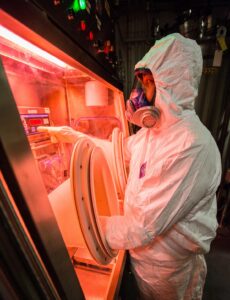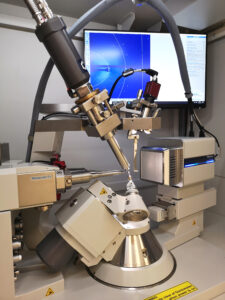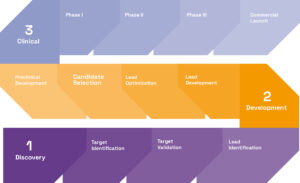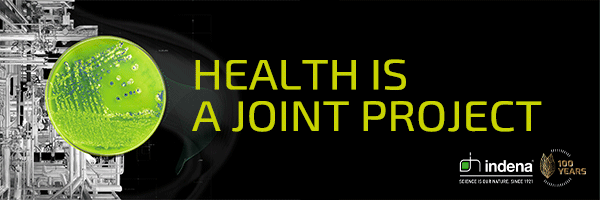Pharmaceuticals
How can today’s CDMOs ensure they can meet tomorrow's demands? 14th October 2022
By Nick Shackley Senior Vice President, Veranova.

In today’s pharmaceutical market, development and manufacturing partners are expected to provide rapid, flexible and innovative solutions for the modern, evolving challenges of drug development. This article outlines the current trend and drivers for outsourced support in pharma.
From processes to final products, the pharmaceutical industry is a sector of constant evolution.
In recent decades, emerging therapies and a renewed focus on patient needs have altered the developmental landscape. While this transformed framework is providing new routes to life-changing therapeutics, it’s also changing what is expected of both originator and generic companies in getting their products to market quickly and on budget.
Throughout the discovery and development pipeline, from large pharmaceutical to virtual organisations, companies are evaluating their outsourcing strategies to combat the rising drug complexity and increasing cost pressures. For both generics and originators, selecting a partner that shares the same perspective and can provide access to advanced technologies, equipment and facilities is essential.
This leaves one last question, are external development and manufacturing partners ready to meet pharma’s evolving needs?
At Veranova, our journey to becoming an independent organisation has provided us with a distinct philosophy. Our pharmaceutical perspective is built on a foundation of over 50 years of experience in pharmaceutical excellence as Johnson Matthey Health, combined with an agile and contemporary understanding of what is needed to deliver high-quality results in today’s market. This allows us to employ our scientific knowledge and diverse talent to explore and develop new ways of solving industry problems while adding value to our customers and stakeholders.
Confidence in capabilities
 Today, outsourcing has advanced from simply servicing needs and reducing costs to true partnerships focused on accessing much-needed technologies and expertise. As such, development and manufacturing partners, commonly known as contract manufacturing and development organisations (CDMOs), now find themselves as the strategic linker, bridging the gap between the patient demands and Pharma’s capabilities.
Today, outsourcing has advanced from simply servicing needs and reducing costs to true partnerships focused on accessing much-needed technologies and expertise. As such, development and manufacturing partners, commonly known as contract manufacturing and development organisations (CDMOs), now find themselves as the strategic linker, bridging the gap between the patient demands and Pharma’s capabilities.
To get a better understanding of the changing demands, let’s take a look at small molecule APIs and fine chemical manufacturing. Over the past 30 years, new approaches to drug discovery have led to larger, more complex, and more aromatic new chemical entities (NCEs) and lead candidates. Combined, these modifications have led to both increased development complexities and poor water solubility challenges in the development pipeline.
While there are solutions available to enhance solubility, in the high-pressure and time-poor environment of drug development a ‘first-time-right’ approach is crucial. Evaluating enhancement options requires a detailed investigation into the molecule and its final product profile, combined with an understanding of the market landscape.
At Veranova, as part of our Pharmorphix® solid form and particle engineering offering, we have completed over 2000 customer projects and our crystallography team has collected a similar number of single crystal x-ray structures since 2003. Leveraging this long-standing expertise continues to be critical in our approach to enabling development success. As a result, we have touched 20% of the top selling 200 small molecules for 2021 and one in five FDA-approved small molecule drugs since 2014 involved collaborations with us.
 Pairing our scientific know-how and solid form science experience, with detailed analytical insights, we’re able to identify the reliability and risks of specific approaches to improve the properties and success rates of drug candidates. As such, our partners are provided with a path forward designed for their molecules, utilising approaches, such as nanomilling, cocrystals, hot-melt extrudates, molecular disperse solutions, amorphous active pharmaceutical ingredients and more traditional ones such as pharmaceutical salts.
Pairing our scientific know-how and solid form science experience, with detailed analytical insights, we’re able to identify the reliability and risks of specific approaches to improve the properties and success rates of drug candidates. As such, our partners are provided with a path forward designed for their molecules, utilising approaches, such as nanomilling, cocrystals, hot-melt extrudates, molecular disperse solutions, amorphous active pharmaceutical ingredients and more traditional ones such as pharmaceutical salts.
Through this work, we’ve supported our customers in overcoming the hurdles of challenging isolations with our expertise in cocrystal formation and crystallisation development. As lead candidates move through pipeline stages, we’re also able to leverage the solid form data to support regulatory and intellectual property submissions.
Transparency and trust
In an increasingly competitive sector, industry expertise and experience from the right partner can unlock R&D agility and deliver the flexibility needed to make progressive decisions quickly and easily. However, drug development can be a lengthy, complex and costly process, and navigating this risky and uncertain route with a partner requires transparency, trust and a shared vision of success.
In an era of pharmaceutical urgency, regulatory bodies are responding with increased support for breakthrough therapies and repurposed drugs. The impact of this is best seen in the rising number of orphan drug designation requests.
Looking to the Orphan Drug Act (ODA), this pathway is designed for therapeutics to combat illnesses that affect a small section of the population. Through an ‘orphan drug status’, sponsors are granted incentives such as enhanced patent protection and marketing rights, and clinical research subsidies.
While it’s easy to recognise the value of leveraging this pathway, it’s not as obvious to determine how this impacts choosing an outsourcing partner. Orphan drug development is often undertaken by smaller and virtual companies. Compared to the traditional large pharmaceutical companies, these firms typically lack the development expertise and manufacturing assets required to produce the quantities required for clinical or commercial supply.
Like any successful relationship, the importance of trust cannot be understated. For these companies, the benefits of outsourcing are related to their partner’s ability to practically harness its expertise and regulatory experience. To turn this insight into a strong project partnership, client context is crucial. By viewing the project from the sponsor’s perspective, CDMOs can harness a company’s key value drivers, critical milestones, funding sources and potential exit scenarios to enable a transparent communication channel.
Through this consultative approach, CDMOs can guide their projects, sponsors and teams to achieve the target within set timelines, accelerating at the right point. Leveraging these, at the right time and the right level throughout the clinical phases, is essential to support potentially favourable clinical data. This should allow companies to achieve a greater degree of confidence and success.
As a future-oriented service provider, we continuously monitor market trends and customer requirements. At Veranova, in line with the growth of orphan drugs, we continue to invest in designing our facilities to support flexible, modular, small-volume API manufacturing and handling of potent compounds. Veranova has also invested in purification technologies, including large-scale chromatography capabilities, to complement our expertise in crystallisation design and particle engineering.
 Collaboration through communication
Collaboration through communication
Converging healthcare trends for smaller patient populations and personalisation are putting significant pressure on R&D organisations to boost the throughput of a diverse range of much-needed medicines.
For drug developers, scientific and manufacturing advances are creating opportunities to address these new demands through previously ‘undruggable’ targets. Antibody-drug conjugates (ADC) are an example of this novel group of modalities that have the potential to provide patients with great benefits. In 2021, 72% of FDA approvals were for synthetic modalities.
ADCs aim to combine the potency of cytotoxic agents with the target selectivity of antibodies. This is done by chemically linking a cytotoxic payload to an antibody, creating a synthetic molecule that will deliver targeted anti-tumor therapy that is both safe and efficacious.
Leveraging novel modalities requires an understanding of the development pathways available and knowing which routes and products are viable and have adequate long-term market potential is a common development challenge. However, for companies without the in-house capabilities and experience, deciphering the developmental and technical risks that come with uncharted territory can be even more difficult. Furthermore, as competition intensifies for previously undruggable targets, accelerating the time to market has become even more crucial. For originator-sponsors, securing more time on the market is essential to meet commercial goals.
As these dynamics continue to drive pharma development, it’s important to examine the CDMO-Sponsor collaboration.
As discussed, it is not only important for CDMOs to be trusted partners, but it is becoming more important for them to contribute specialty technical knowledge. Establishing strategic partnerships with open communication channels provides a fresh perspective backed by industry understanding. This transformation of the CDMO-Sponsor relationship changes the role from identifying and supporting needs to accelerating innovation.
Understanding the need for drug developers to stand out in the competitive market, we’ve built our custom pharma solutions around ensuring innovation and the timing of market entry. As such, not only can we support our partners’ innovative modalities, for example, high potency APIs and ADCs, but we’re also able to give advice on the regulatory landscape and anticipate risks early.
Within both clinical and development stages, timing is everything. Disruptions can occur at any step of development, adding new costs and lengthening timelines. Collaborative partners can look ahead and build project plans around shared expertise. Inspiring a more agile and flexible approach is key to identifying and accelerating the critical path effectively.
At Veranova, through our API lifecycle management capabilities, solid form screening and characterisation, phase-appropriate process and analytical development, we’re able to handle complex synthetic chemistries. This integrated service enables our team to quickly identify challenges and develop solutions based on real-time data before they become bottlenecked, which in turn lowers the risk of timeline delays for our customers.
Tried, tested, timeless
As the development and manufacturing of medications become increasingly complex and competition becomes more intense, future-oriented companies must work on innovative solutions to keep pace.
Working with a partner that has an integrated approach to drug development and manufacturing makes it possible for processes to be optimised, enabling companies to save costs, time and personnel resources.
At Veranova, we work to develop a drug product with commercial manufacture in mind, allowing us to consider the challenges involved in the commercialisation of a drug and subsequently minimise the barriers that could disrupt the journey to market.
Focusing on customer relationships and ensuring access, transparency and alignment are essential to success as a CDMO. As such, we’ve embedded Integrity, Innovation, Efficiency, Collaboration and Equality into our values and service. These allow us to provide more than a third-party expert opinion, but to deliver a strategic, value-adding mix of specialised services, customised solutions and efficient operations – one that spans as much of the value chain as possible.


